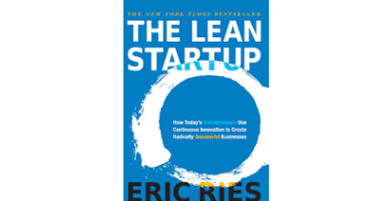Book Overview: "The Lean Startup" by Eric Ries
Author: Eric Ries
Publication Year: 2011
Genre: Business, Entrepreneurship, Management
Summary:
"The Lean Startup" introduces a methodology that emphasizes a systematic, scientific approach to creating and managing successful startups. Eric Ries advocates for a combination of business-hypothesis-driven experimentation, iterative product releases, and validated learning to foster innovation and sustainable growth.
10 Key Points:
Build-Measure-Learn: The core principle of the Lean Startup methodology is the Build-Measure-Learn feedback loop, emphasizing rapid iterations and learning from real-world data.
Ads by Google
Minimum Viable Product (MVP):
Ries introduces the concept of the MVP, the smallest version of a product that allows a team to collect the maximum amount of validated learning about customers with the least effort.
Validated Learning:
The emphasis is on learning what works and what doesn't through validated feedback from the market, rather than relying solely on intuition or assumptions.
Pivot and Persevere:
The book discusses the importance of being willing to pivot (make a fundamental change to the product or strategy) based on feedback, or persevere if the initial strategy proves successful.
Ads by Google
Continuous Deployment:
Ries advocates for a continuous deployment model, where small batches of features or improvements are released quickly, enabling faster learning and adaptation.
Lean Thinking:
The book draws on lean manufacturing principles, adapting them to the context of startups to eliminate waste, optimize processes, and create value for customers.
Innovation Accounting:
Ries introduces the concept of innovation accounting, which helps measure progress and validate learning in the early stages of a startup when traditional financial metrics may not be applicable.
The Three Engines of Growth:
Ries identifies three engines of growth: the sticky engine (customer retention), the viral engine (customer referrals), and the paid engine (customer acquisition).
Entrepreneurial Management:
The book challenges traditional management approaches and advocates for an entrepreneurial management style that aligns with the uncertainty and rapid change inherent in startups.
Lean Startup in Established Companies:
Ries discusses how the Lean Startup principles can be applied not only to startups but also to large, established companies seeking to foster innovation and agility.
Conclusion:
"The Lean Startup" is a groundbreaking guide that has revolutionized the way entrepreneurs approach building and scaling businesses. Eric Ries provides a practical framework for systematically testing ideas, minimizing risk, and adapting quickly in the dynamic world of startups. The book's principles extend beyond the startup realm, influencing how businesses of all sizes can navigate uncertainty and promote innovation. A must-read for aspiring entrepreneurs, business leaders, and anyone interested in fostering a culture of continuous improvement and adaptability in their ventures.
Ads by Google
"The Lean Startup" Book PDF.
Get Free Audio Book:
Paper Book:



.png)



